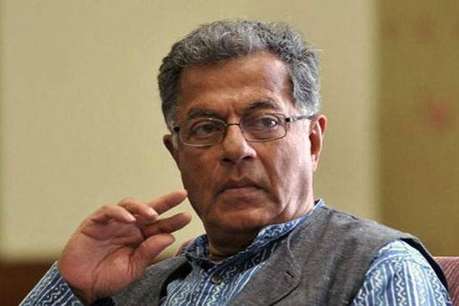Renowned playwright, actor and Jnanpith awardee Girish Karnad, who left his indelible mark in the world of literature, theatre and cinema passed away at his residence Monday morning after prolonged illness, official sources said.
A multi-hyphenate personality, who often courted controversies for his vocal stance, Karnad, 81, is survived by wife Saraswathi, son Raghu Karnad, a journalist and writer, and daughter Radha.
“He breathed his last around 8 am… and had been suffering with ailments including breathing problem for some time now,” sources close to Karnad’s family said.
A recipient of Padma Shri and Padma Bhushan, Karnad was one of the most important literary minds of the present era.
He had acted in and directed several plays and movies that earned critical acclaim.
Karnad’s plays, written in Kannada, have been translated into English and several other Indian languages.
According to family sources, his last rites will be held at Kalpali electric crematorium in the city later in the day.
As per his wishes, the family has decided not to follow any religious ceremonies and accept state honours during funeral, they said.
The family has also requested his fans and dignitaries who want to pay last respects to directly come to crematorium as they want it to keep it private.
Declaring a holiday on Monday as a mark of respect to Karnad, the Chief Minister’s office in a statement also announced a three-day state mourning.
The CMO said Karnad will also receive state honours, which is in line with respect given to other Jnanpith awardees in the past.
Condoling the death of Karnad, Chief Minister H D Kumaraswamy said, “We have lost a cultural ambassador.”
“Deeply saddened to hear of the demise of Jnanpith laureate writer and iconic actor/film maker, Sri #GirishKarnad.
“His outstanding contribution to literature, theatre and films will always be remembered. In his death, we lost a cultural ambassador. May his soul rest in peace,” Kumaraswamy tweeted.
Former Prime Minister H D Deve Gowda said Karnad had brought seventh Jnanpith award to Kannada language.
BJP state president B S Yeddyurappa in a tweet said, “Saddened to hear the demise of veteran actor-playwright and jnanapeeta awardee Sri Girish Karnad. My deepest condolences to @RKarnad and his family.”
Karnad was born in Maharashtra in 1938 as third child to Dr Raghunath Karnad and Krishnabai. His mother was a young widow before marrying Raghunath Karnad.
The family later shifted to Sirsi and Dharwad in Karnataka where he spent his formative years and the family’s inclination to dramatic arts laid the foundation for his future in the literary world.
Known to be a part of “Navya” literary movement, which was influenced by the renaissance in Western literature, Karnad wrote “Nagamandala”, “Hayavadana”, “Tughlaq” and “Yayati” among others.
His noted work in the field of film include “Samskara”, which was based on a novel by U R Ananthamurthy and “Vamsha Vriksha”, based on a Kannada novel by S L Bhyrappa among others.
Karnad has also acted in several Kannada and Hindi commercial movies, most recent being 2017’s “Tiger Zinda Hai”.
He also courted controversies, and was a known critic of Prime Minister Narendra Modi.
Karnad was among 600 theatre personalities who had signed a letter ahead of the Lok Sabha polls asking people to “vote BJP and its allies” out of power, arguing that the idea of India and its constitution were under threat.
He had been highly critical of Modi being “the single face and voice” of BJP.
Karnad had criticised Nobel laureate V S Naipaul for his controversial views on Muslims in India, saying the writer had no idea of the community’s contribution to the country’s history.
Calling Naipaul an unreliable writer of non-fiction as far as India was concerned, Karnad had said, “He really doesn’t pay much attention to the details of the texts he studies.”
Amid raging controversy over Karnataka government’s decision to celebrate Tipu Jayanti, Karnad had said the 18th century Mysore ruler would have enjoyed the same status as of Maratha king Chhatrapathi Shivaji, if he was a Hindu and not a Muslim.
He had also said it would have been “apt” had the Bengaluru International Airport at Devanahalli near here been named after Tipu Sultan rather than Kempegowda, a feudatory ruler under the erstwhile Vijayanagara Empire which founded Bengaluru in 1537, which drew lot of criticism.



